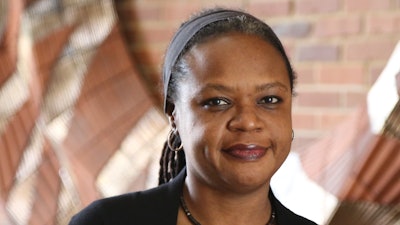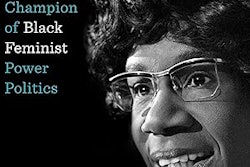Dr. Sophia Rahming is helping to revolutionize peer-to-peer learning at Florida State University (FSU).
As associate director of the university’s Center for Advancement of Teaching, Rahming oversees FSU’s Learning Assistant Program, which has yielded impressive results in helping students excel in some of the school’s high-enrollment, lower-division courses that provide the foundation for learning in late courses.
 Dr. Sophia Rahming
Dr. Sophia Rahming
The Learning Assistant (LA) model program is not new. It was originally conceived and developed at the University of Colorado Boulder and has since grown to more than 120 other colleges. The concept is quite simple. Undergraduate LAs operate as part of an instructional team, supporting both students and faculty to create more inclusive, learner-centered classrooms that improve student and faculty success. At FSU, the program has also worked to increase access to STEM majors.
“My goal is to have the LAs look like the students in the courses,” says Rahming. “When that happens, they’re more willing to reach out.”
Undergraduate students who earn a ‘B’ or above in one of the offered courses — usually in the STEM fields — are recruited and offered a paid job to work with other students enrolled in that same course.
“We find that student success has increased,” says Rahming, whose scholarly research centers on the STEM-related experiences of Afro-Caribbean women and other women of color in STEM education and careers.
In a state that has forced its public institutions to pivot away from the use of race, Rahming — who earned her Ph.D. from FSU in 2019 — hasn’t had trouble recruiting diverse students from all backgrounds to sign up as LAs. There were only 45 LAs during the inaugural launch of the program in 2019 and today there are 330.
The program is growing by leaps and bounds.
Much like teaching assistants, LAs help students navigate the course material, but they do not grade assignments or exams nor directly lecture or teach courses. FSU’s shift to this model, says Rahming, was a recognition that the institution needed to create an interactive teaching environment, moving from a passive environment to an active learning classroom.
But how do you do that with a class of 400 students? That’s where the decision was made to use LAs.
“They are building their learning and deepening their understanding too, and they’re working with a world-class faculty,” says Rahming, who adds that the LAs can “stay as long as they want, up to graduation.” Some stay for four years, and some are a bit skeptical when Rahming informs them that they’re going to pay them for their assistance.
“Sometimes they think it’s a scam,” she says with a chuckle. “I have to let them know, ‘Yes, we are going to pay you to come back and help others.’”
Many of the LAs have gone on to accomplish great achievements, including Daniel Zuniga, a recent FSU graduate who was named a Rhodes Scholar finalist. The Colombia native has plans to practice medicine in underserved communities around the globe. He notes that his experience as an LA where he helped teach undergraduate students STEM courses like biology and biochemistry was a turning point in helping him communicate scientific concepts fundamental to medicine to people from different backgrounds.
For her efforts, Rahming recently received the O∆K Community Commitment Award for Diversity, Equity, and Inclusivity by the honor society, Omicron Delta Kappa. The award recognizes the achievements of members who consistently promote an inclusive campus or community and demonstrate an ongoing commitment to diversity, equity, and inclusivity.
“This is praxis. Research meets practitioner,” says Rahming, who initially planned to go the tenure-track route after earning her Ph.D. from FSU but has since found fulfilment as an administrator. “I have the ability to help change policy and have boots on the ground for the opportunity to change things tomorrow.”
For her part, Rahming, a native of The Bahamas, has not abandoned her scholarship. She and other Black women faculty members recently published an edited book, Black Sisterhoods: Paradigms and Praxis, in which the authors explore notions of Sisterhood among Black women as a noun and a verb.
“I am still doing my research. I continue to function in that scholarly/research world,” says Rahming, who earned a master’s degree in curriculum and instruction from the University of St. Thomas in St. Paul, Minnesota, and a bachelor’s degree in elementary education from the College of Saint Benedict in St. Joseph, Minnesota. “I get to marry all of my previous experiences into one job.”



















